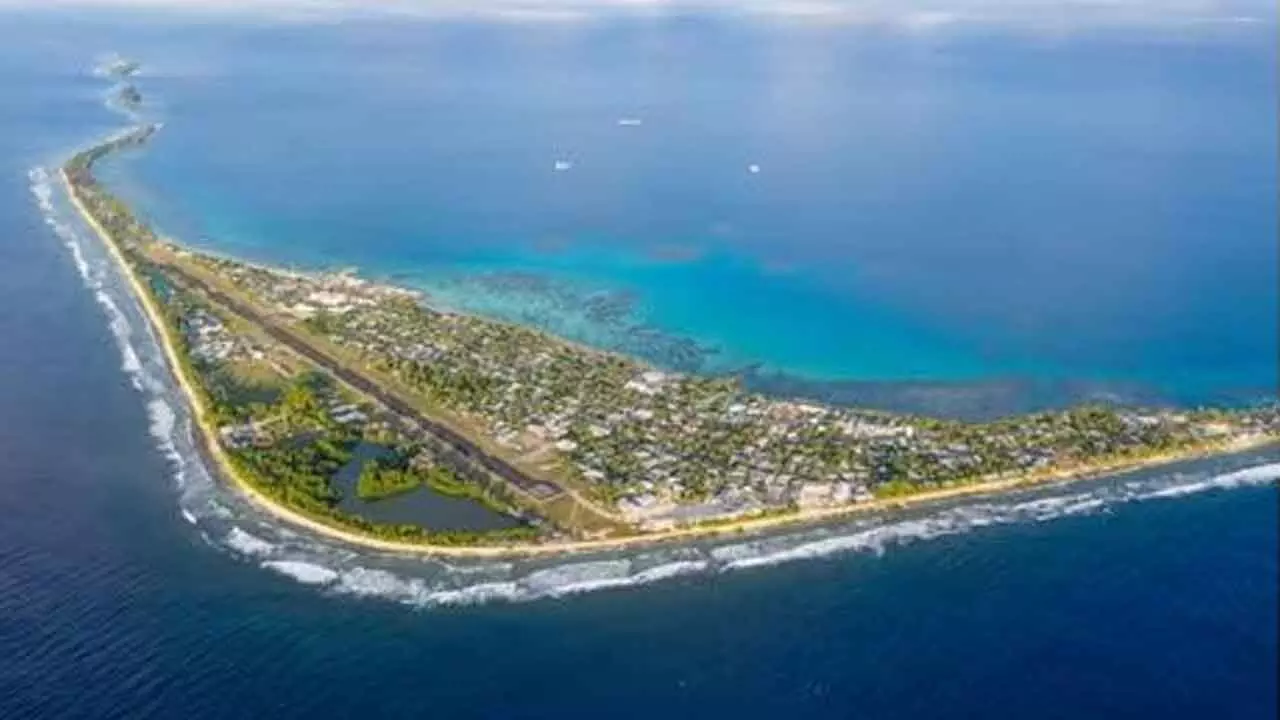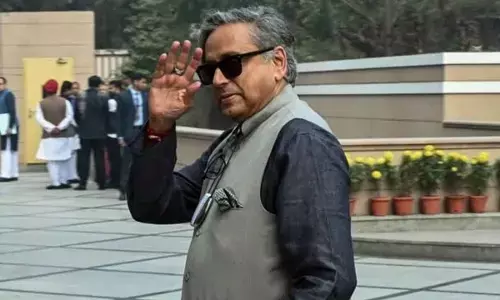Saving low-lying island nations from rising seas

Though climate change has been an internationally recognised challenge since the United Nations Framework Convention on Climate Change (UNFCC) in 1992, efforts towards reducing carbon emissions by governments remain uneven and insufficient.
Notable effects of global warming include the melting of polar ice (as demonstrated by the giant iceberg that recently broke away from Antarctica) and rising sea levels, as well as dramatic and irregular weather, which together can put our fragile environment under stress. Even so, as of today, out of 195 state parties to the 2015 Paris climate agreement, only 148 have ratified it. While some countries evidently do not fully appreciate the sense of urgency, island nations have no such luxury.
The first casualties of global warming
Conceptually, state sovereignty is demarcated by physical territory. For island states, that means, in effect, their shoreline. As sea levels rise, many island states could soon be annihilated and their residents forced to flee, rendering extinct their societies.
The report on rising sea levels released in January 2017 by the US National Oceanic and Atmospheric Administration (NOAA), predicts the worsening scenario of global sea levels rising between 0.3 and 2.5 metres by the year 2100. This projection is an increase from the group’s December 2012 estimate of a maximum rise of two metres.
Driven by the urgency to deal with the effects of rising sea levels, an Alliance of Small Island States (AOSIS) was established in 1990. Today, AOSIS consists of 19 countries in the Atlantic Ocean, 16 countries in the Pacific Ocean, four countries in the Indian Ocean, and five observers.
The Polynesian island of Tuvalu is one of them. There, freshwater supply from reservoirs are already gradually being replaced by seawater. In parallel, it is also being contaminated by sewage. Agricultural production, Tuvalu’s economic lifeline, will likely be affected by the diminishing supply of potable water.
Any viable options?
Given that the territorial integrity of many island nations is so severely threatened by rising sea levels, should we expect all 39 AOSIS members to begin arrangements for the large-scale exodus and resettlement of their populations?
This would be a tall order, considering the current anti-globalisation sentiment. In the meantime, as the international community continues to negotiate global carbon-reduction goals as if they are trade barriers, more concrete and proactive remedial steps could be taken to preserve small island states from imminent disappearance.
Taking a page from China’s speedy reclamation experience in the South China Sea, one solution may be to construct and expand these small island states into sizeable landmasses.
Environmentalists and NGOs may cringe at the thought of the large-scale reclamation of island states in the Pacific, Atlantic or Indian oceans, and, like any massive engineering project, this approach raises valid environmental concerns.
But in lieu of an immediate global consensus on carbon neutrality, this is a solution that multilateral financial institutions and international organisations, such as the the Asian Infrastructure Investment Bank (AIIB), the Asian Development Bank (ADB) and the United Nations, could consider setting up either single-handedly or jointly a fund to rebuild and re-inhabit small island states.
Based on the Dutch model, this fund could be used for land reclamation, creating new and expanded
territories for these island states and erecting a five-metre storm surge barrier comparable to the Holland’s Maeslantkering. Such a grand undertaking would be an engineering marvel – with a hefty price tag to match.
(Lim is a Senior Fellow in Science, Technology & Economics at RSIS, Nanyang Technological University; Mack is an Associate Research Fellow in Non-Traditional Security Studies at RSIS, Nanyang Technological University; https://theconversation.com/)















